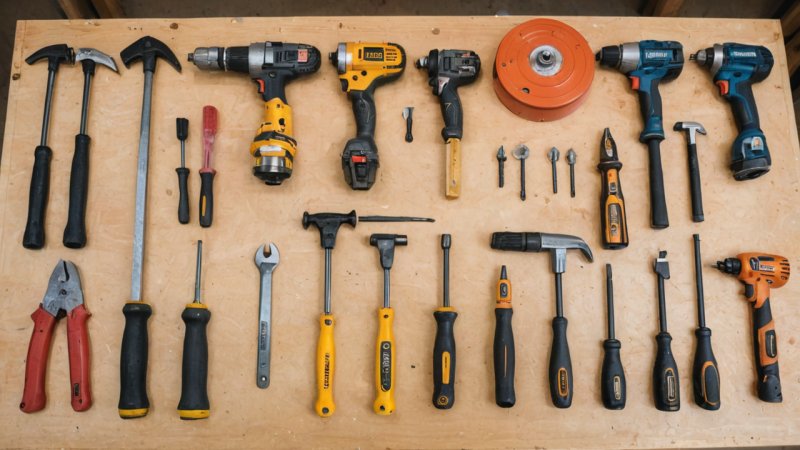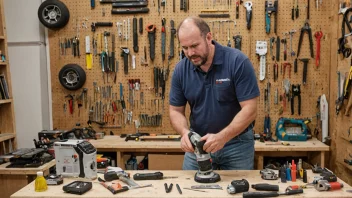When it comes to tackling DIY projects or home improvements, one of the first decisions you'll need to make is whether to use hand tools or power tools. Each category has its distinct advantages and disadvantages, making the choice dependent on the specific task at hand, your skill level, and personal preferences. In this article, we will explore the pros and cons of both hand tools and power tools, helping you determine which is best suited for your next project.
Understanding Hand Tools
Hand tools are the traditional tools that have been used for centuries. They require manual effort to operate and typically do not rely on electricity or batteries. Examples include hammers, screwdrivers, wrenches, and saws. Let’s take a closer look at the benefits and drawbacks of using hand tools.
Pros of Hand Tools
- Cost-Effective: Hand tools are generally less expensive than power tools, making them a good option for beginners or those on a budget.
- Portability: Most hand tools are lightweight and easy to transport, allowing you to work in various locations without needing a power source.
- Precision: Hand tools often provide better control, especially for detailed work, making them ideal for intricate projects.
- Durability: With proper care, hand tools can last a lifetime, requiring little maintenance and fewer repairs.
- Skill Development: Using hand tools helps develop your skills and techniques, making you a more proficient DIYer.
Cons of Hand Tools
- Physical Effort: Hand tools require more physical strength and endurance, which can be tiring during extensive projects.
- Time-Consuming: Tasks can take longer when completed with hand tools, particularly for larger projects.
- Limited Power: Hand tools may not be suitable for heavy-duty tasks, such as cutting through thick materials.
Understanding Power Tools
Power tools leverage electricity, batteries, or compressed air to operate. They can perform tasks quickly and with less physical exertion. Common power tools include drills, saws, sanders, and nail guns. Let’s evaluate the advantages and disadvantages of power tools.
Pros of Power Tools
- Efficiency: Power tools can significantly reduce the time required to complete tasks, especially for larger projects.
- Less Physical Strain: Using power tools minimizes the physical effort needed, making them suitable for users of all fitness levels.
- Versatility: Many power tools come with attachments or features that allow them to perform multiple functions.
- Power: Power tools can handle tough materials or larger projects that might be unrealistic with hand tools.
- Consistent Results: Power tools provide uniform results, which is particularly beneficial for projects requiring precision and consistency.
Cons of Power Tools
- Cost: Power tools can be significantly more expensive than hand tools, often requiring a larger initial investment.
- Maintenance: They may require more maintenance and repairs, particularly if not used properly.
- Safety Risks: Power tools can be dangerous if mishandled, requiring users to take extra precautions.
- Dependency on Power: They require a power source, which can limit your ability to work in remote or outdoor locations.
Comparing Usage Scenarios
The choice between hand tools and power tools often depends on the specific project you are undertaking. Let’s look at a few common scenarios:
Small Repairs and Detailed Work
For small repairs, such as fixing a leaky faucet or assembling furniture, hand tools are often the best choice. They allow for precision and control, making it easier to work in tight spaces.
Larger Construction Projects
When tackling larger projects, such as building a deck or renovating a room, power tools can save time and effort. They can handle the heavy lifting and ensure quicker completion.
Outdoor Projects
For outdoor work, consider the environment. If you’re in a remote area without power access, hand tools are more practical. However, if you have access to electricity, power tools can expedite the process.
Final Thoughts
Ultimately, the decision between hand tools and power tools depends on the nature of your project, your skill level, and your preferences. For beginners or those looking to develop their skills, starting with hand tools may be beneficial. Conversely, if you’re experienced or undertaking a large project, investing in power tools could be the way to go. Many DIY enthusiasts find that a balanced combination of both types of tools in their arsenal provides flexibility and efficiency for various tasks.






